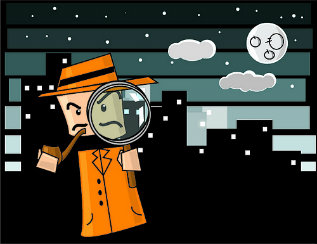Careers In Forensic Accounting: It Takes A Sleuth
Do you like to dig? Then earning an online accounting degree and pursuing a career in forensic accounting may for you.

Do you like to dig? Then earning an online accounting degree and pursuing a career in forensic accounting may for you.


Do you like to dig? Really dig?
Then a career in forensic accounting may be for you.
Forensic accountants combine their accounting knowledge with investigative skills to uncover large-scale corporate fraud and a multitude of complex financial schemes.
Think kickbacks, insider trading and inflated inventories. Think Ponzi schemes.
Think Bernie Madoff, the mastermind behind the largest Ponzi scheme in U.S. history. The New York financier swindled investors out of more than $65 billion dollars.
And Enron. The energy giant, using accounting loopholes and fraudulent financial reporting, hid billions of dollars in debt while encouraging employees and shareholders to invest their life savings in stocks as the company was about to collapse.
Juan (Ed) Roman, assistant professor of accounting at Saint Leo University calls law enforcement forensic accounting the "meat and potatoes" of forensic accounting.
Forensic accountants, he explains, conduct investigations and rebuild financial systems to uncover fraud, trace funds, discover hidden assets and more.
"They look beyond the numbers to learn the specifics," he says. "They search all records, emails, bank statements and journals. They interview the accused and they trace assets."
And they're in greater demand than ever.
According to the FBI, about 15 percent of agents employed by the bureau qualify as special agent accountants.
In addition to accounting, forensic accountants have a wide range of backgrounds and specializations, including:
Many, according to Roman, hold Certified Fraud Examiner (CFE) licensure.
"It's the brass ring for forensic accountants," he says.
According to the Association of Certified Fraud Examiners (ACFE), the world's largest anti-fraud organization, "The CFE credential denotes proven expertise in fraud prevention, detection and deterrence." The 15-year-old association boasts more than 65,000 members.
Why get certified? There are a multitude of reasons according to the ACFE. As a Certified Fraud Examiner you can:
Not sure you're up for so much crime and punishment? There's another side to forensic accounting that may just pique your interest.
Forensic accountants help with risk management and risk reduction, as well as designing accounting and auditing systems and procedures. They conduct due diligence and in-depth analyses to advise on a wide variety of financial transactions, including mergers and acquisitions, major investments and bankruptcy proceedings. And they conduct investigations that don't always make headline news.
As a forensic accountant you might also become involved with:
Forensic accounting has been called "a growth industry."
And it's no wonder.
Challenging economic times often pave the way for financial fraud – from white-collar crimes and pyramid schemes to misstatement of assets and employee theft.
Uncovering the fraud is often a complex and tedious process, one that takes skill, tenacity and an unwavering commitment to arrive at the truth.
The kind of commitment it takes to be a forensic accountant.
What about forensic accounting sounds appealing to you?
Other posts you might be interested in:
CPA to CMA: Which Accounting Certification is For You?
Earning a CPA License: Is it Worth It?
"Should I Study Accounting?" 10 Questions to Help You Find Out
Image Credit: olarte.ollie